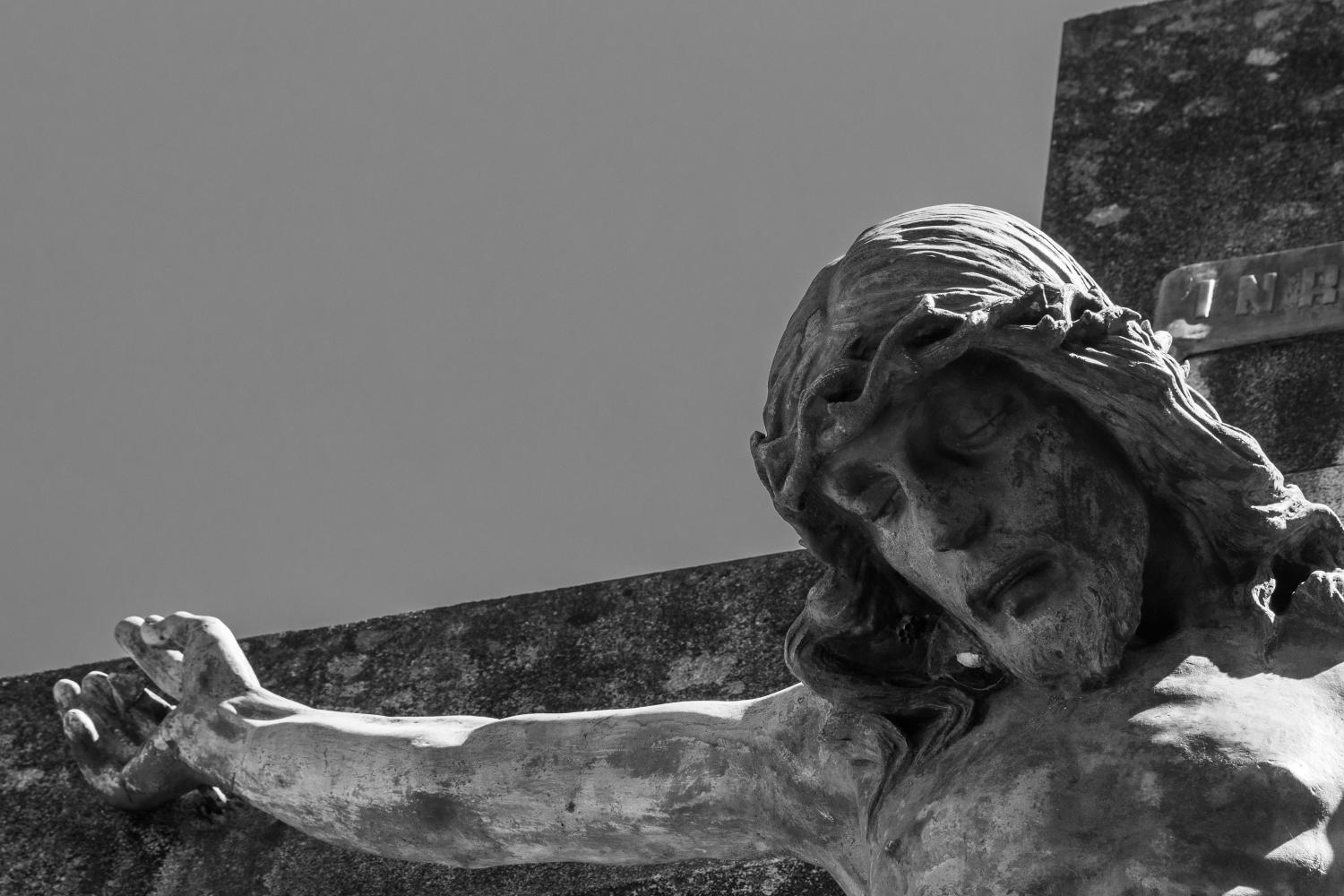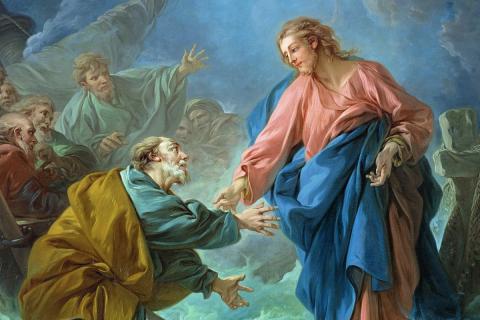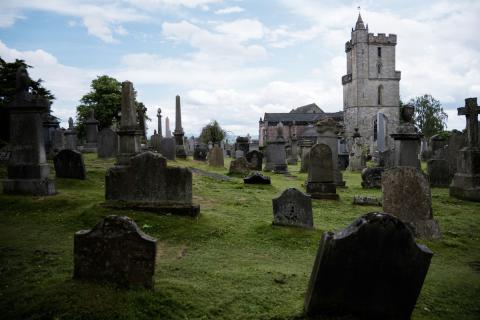
The Wall Street Journal recently published an article on conservative activists’ “favorite communist”: Antonio Gramsci, a 20th-century Marxist who’s become a somewhat unlikely hero for efforts on the political right to bend cultural institutions toward their ends – in the Trump administration’s Harvard funding freeze, for instance, or its restriction of funding for news outlets it considers too liberal.
On one level, such far-right efforts could be seen as an attempt to refute what we often call “the religion of the day.” These conservatives’ fight is, after all, “against critical race theory, against trans ideology, … against DEI,” the piece notes (the acronym referring to Diversity, Equity, and Inclusion initiatives), all of which are theories and ideologies that have become part of the calling card for modern progressive religion. But, importantly, the “religion of the day” isn’t just a matter of what’s typically labelled “liberal” or “progressive” politics, and a refutation of it is not just a hard swing away from those ideals. Rather, the religion of the day is typified, more deeply, as an approach to politics, an approach that’s rooted in ideology (even if associated with “right”-leaning objectives) and the assertion of power-retaining agendas, agendas that are pushed whether or not they’re grounded in what’s true.
Falling into such an approach doesn’t necessarily come from a place of ill-intent. Lots of embattled political positions derive from serious moral issues – the life issue, for instance, or questions around immigration and care for refugees – that really good and honest people look to rally around. But there’s a disposition that can creep into holding a strong moral stance around such topics that gets dicey – a disposition that becomes less so a firm stand for the good and more so a kind of counter-revolution. It happens when folks who seem to be on the “correct” side of such issues start to seek positions of power or influence to force that set of political views into cultural life … but for the sake of those political views themselves, or for their political group’s sense of conquest and supremacy. And when this rise to power starts to become the ruling objective, fewer and fewer tools in the toolbox go untouched: social and institutional manipulation, for instance, aren’t regarded as infringements on human freedom so much as useful political tactics, “necessary evils” for getting the right ideas into the cultural bloodstream.
But “necessary evils” isn’t part of the vocabulary of genuinely Christian political engagement. Even where Christians may agree with the political right (or left), their reasons for doing so, and for advocating for their position, is a function of those positions’ rootedness in perennial truths: truths about both visible and invisible realities, about human anthropology, about what makes up moral acts. What does this mean, then, for the Christian mode of engaging political, social, and institutional life? How should this rootedness in truth affect our political stance, beyond informing which positions we should prize and which not? We’ve spoken before, in the Weekly Update, of the call incumbent upon Christians to be ready always to speak truth, firmly but calmly, even in the midst of violent and upheaving argument. But what exactly does this firm but calm voice sound like?
Well, it doesn’t, first of all, have to sound only on the fringes of political life. In other words, it’s not the case that Christians need to foreswear positions of political or institutional influence in order to maintain their allegiance to the truth. Christians can and should, if they feel so called, do what is lawful and sensible to get themselves positioned such that they can wield social influence. But – and here’s one key distinction – they should do so for the sake of aiding the Kingdom, and of helping truth and goodness to flourish. This means that certain tools in the toolbox are off-limits. Human beings’ freedom to perceive and choose truth – or to choose otherwise – is always to be honored. And when human beings aren’t choosing rightly, this is never occasion for coercion, for forcible legislation, for various kinds of emergency power-grabbing, or for fomenting emotionally-uproarious, reason-bypassing revolution, however worthy the truths one’s advocating for may be.
Rather, Christians are also called in their circumstances to learn to suffer for the truth. They’re called to continue to patiently and consistently apply eternal principles to human affairs as they’re able, even when that patient and consistent application doesn’t seem to be “working,” in how far its influence is reaching. This means that even where opposing agendas may be winning the day, or where power positions are going to problematically-minded figures, Christians don’t just turn the tables and apply any and every strategy that’s *practically* feasible to clamber back to the top. Instead, they keep appealing to the reason and free will of those they’ve been given to serve, enduring with persevering love and integrity whatever consequences may come if and where their appeals go unheeded – even when those consequences include their ideas or motives being doubted, mischaracterized, demonized, or misunderstood.
In this, as in everything else, we’re meant to cling to supernatural realities as the measure of our natural ones. Thus we should remember, in these veins of inquiry, the Lord Jesus himself, who spoke truth with great courage, but who did not impose his rule on those who refused it, even to the point of being put to death. This world is our testing ground, after all, to see who is worthy of their true home on the other side of the veil. Until we find ourselves there, it is God’s will that goodness and evil should continue to go head-to-head, forcing each individual to choose one side or the other. It should be no surprise, then, that that battle comes with apparent wins as well as seeming losses. And so in our encouragement of our brothers and sisters to choose well, to know and embrace the truth in their lives, we should be sure not to risk fumbling our own choice by forcing theirs. Our call, instead, is steadily to love – to love the truth and to love our neighbor, and to suffer in love when bidden, just like Christ himself.

Understanding the Papacy
The Church, like Christ himself who inhabits it, is shrouded in mystery. It is a human institution, but with a divine life coursing through it. Where does the pope fit into this mysterious institution? Explore our series on the papacy.


